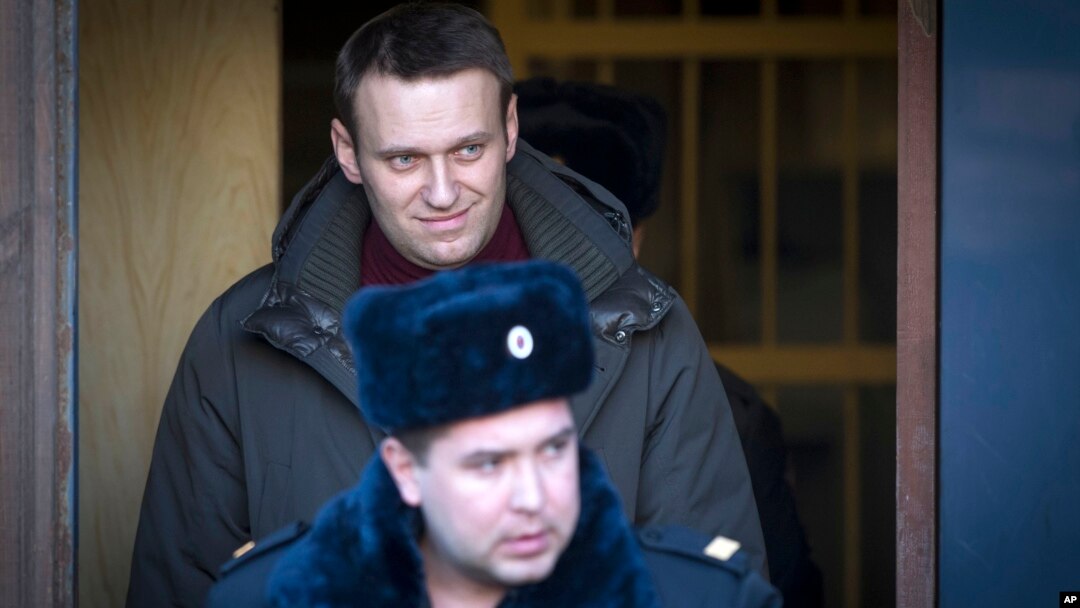WASHINGTON —
In what appears to be another move designed to stifle dissent online, Russia's federal regulator announced on Thursday that it had blocked access to the Internet sites of Kremlin critics.
The list from Roskomnadzor included independent pro-opposition news sites, the website of opposition leader Garry Kasparov, and the blog of popular anti-corruption activist Alexei Navalny.
"The prosecutor general's office ordered Russian Internet providers to restrict access to these Internet resources," Roskomnadzor said.
Roskomnadzor said Navalny's blog violated the conditions of house arrest recently imposed on the opposition leader, who is serving a five-year suspended sentence on a theft conviction, which he claims was engineered by the Kremlin.
The other three sites were ordered blocked because they "contain calls for illegal activity and participation in mass events conducted in violation of the established order," the regulator said.
Nikolai Rudensky, deputy chief editor of one of the opposition sites, told VOA's Russian service that editors have no exact information as to why the website is blocked.
Another blocked site editor, Alexander Ryklin, called the blacklisting of his website "monstrous" and a "direct violation of all the principles of freedom of speech," radio station Ekho Moskvy reported.
Ryklin said he did not know why the site was blocked.
The moves came a day after the editor of independent news site Lenta.ru was dismissed after it received a warning about publication of remarks by a Ukrainian far-right leader in what dozens of its staff members alleged was Kremlin censorship.
Ten days ago, Roskomnadzor acted on the order of the general prosecutor's office, and blocked 13 Internet pages linked to "the activity of Ukrainian nationalist groups."
Online activists and journalists are increasingly concerned that the Russian leadership is seeking to broaden Internet censorship and tighten control over Russian society as Russia faces off against the United States and European Union in a bitter dispute over the future of Ukraine.
"This is the latest political decision taken as part of the cleansing of the media space," Navalny's spokeswoman Anna Veduta said on Twitter.
The Kremlin denies allegations of censorship or pressure on the media, but media watchdog organizations disagree.
A report by Reporters Without Borders published March 12, the World Day against Cyber Censorship, condemned Russia, calling it one of the "enemies of the Internet."
Russia, the report says, has adopted dangerous legislation governing the flow of news and information and freedom of expression online.
The list from Roskomnadzor included independent pro-opposition news sites, the website of opposition leader Garry Kasparov, and the blog of popular anti-corruption activist Alexei Navalny.
"The prosecutor general's office ordered Russian Internet providers to restrict access to these Internet resources," Roskomnadzor said.
Roskomnadzor said Navalny's blog violated the conditions of house arrest recently imposed on the opposition leader, who is serving a five-year suspended sentence on a theft conviction, which he claims was engineered by the Kremlin.
The other three sites were ordered blocked because they "contain calls for illegal activity and participation in mass events conducted in violation of the established order," the regulator said.
Nikolai Rudensky, deputy chief editor of one of the opposition sites, told VOA's Russian service that editors have no exact information as to why the website is blocked.
Another blocked site editor, Alexander Ryklin, called the blacklisting of his website "monstrous" and a "direct violation of all the principles of freedom of speech," radio station Ekho Moskvy reported.
Ryklin said he did not know why the site was blocked.
The moves came a day after the editor of independent news site Lenta.ru was dismissed after it received a warning about publication of remarks by a Ukrainian far-right leader in what dozens of its staff members alleged was Kremlin censorship.
Ten days ago, Roskomnadzor acted on the order of the general prosecutor's office, and blocked 13 Internet pages linked to "the activity of Ukrainian nationalist groups."
Online activists and journalists are increasingly concerned that the Russian leadership is seeking to broaden Internet censorship and tighten control over Russian society as Russia faces off against the United States and European Union in a bitter dispute over the future of Ukraine.
"This is the latest political decision taken as part of the cleansing of the media space," Navalny's spokeswoman Anna Veduta said on Twitter.
The Kremlin denies allegations of censorship or pressure on the media, but media watchdog organizations disagree.
A report by Reporters Without Borders published March 12, the World Day against Cyber Censorship, condemned Russia, calling it one of the "enemies of the Internet."
Russia, the report says, has adopted dangerous legislation governing the flow of news and information and freedom of expression online.


